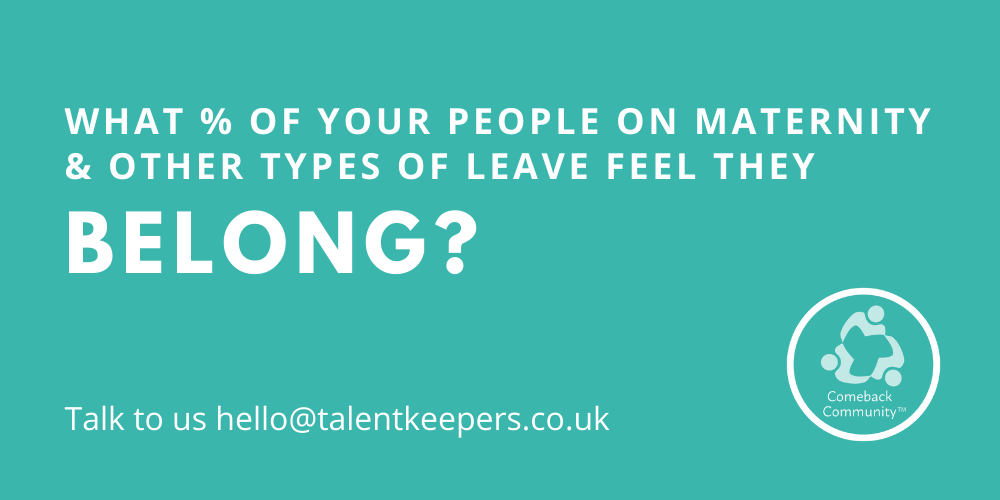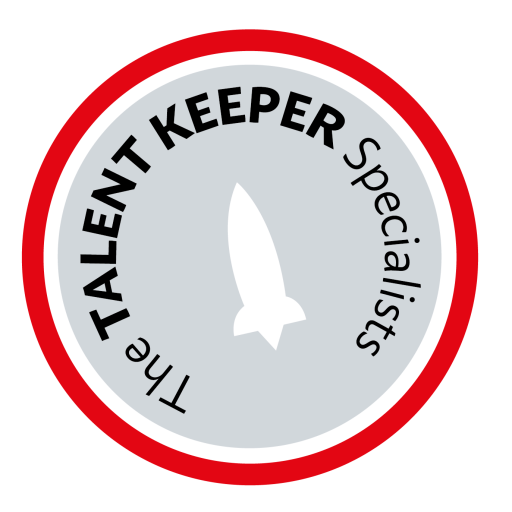9 Needs of Leave
We are on a mission to keep people feeling confident, connected and cared for when they take extended leave from work. This includes men as well as women, and reasons beyond maternity such as sickness, sabbatical and shared parental leave.
Our Comeback Community™ employee experience is designed to help people navigate real and perceived barriers to returning to work and onward progression; boost confidence and fuel professional impact when they’re back at work. We want to minimise brain drain and maximise talent.
9 NEEDS OF LEAVE FRAMEWORK
Our content is designed around our 9 Needs of Leave framework which support three positive states: feeling confident, feeling connected and feeling cared for.
- To feel a sense of BELONGING
- To feel UNDERSTOOD
- To feel a sense of PURPOSE
- To feel EQUIPPED
- To feel SECURE
- To feel ACCOMMODATED
- To feel COMPETENT
- To feel VALUED
- To feel SUCCESSFUL
ORGANISATIONAL BENEFITS & RISKS MANAGED
When employees feel confident, connected and cared for throughout their leave of absence:
- Increased retention[i]
- Higher engagement[ii]
- Performance boosted
- Narrowed gender pay gap
- Employer brand enhanced
MATERNITY LEAVE, CAREER PROGRESSION & NARROWING THE GENDER PAY GAP
Women who are on, or returned from maternity leave in the last couple of years, are a key priority for many of our clients, because:
- Women and men experience a ‘large divergence’ in their career paths in the years following childbirth, according to a study[i] following more than 3,500 new parents. Only 27.8 percent of women are in full-time work or self-employed three years after childbirth, compared to 90 percent of new fathers.
- 26 percent of men have been promoted or moved to a better job in the five years following childbirth, the figure is just 13 percent for women.
- For new mothers – but not fathers – staying with the same employer is associated with a lower risk of downward occupational mobility but also with lower chances of progression.

INCREASING A SENSE OF BELONGING
40% of people on maternity, furlough and other types of long leave from work feel as though they don’t belong.[i] Here are some practical ways to boost belonging, before, during and after leave:
BEFORE LEAVE
- Talk about looking forward to your colleague coming back before they leave and which of their strengths/skills/experiences you’ll miss the most.
- Agree how and when work will be handed over. Don’t sideline or leave your colleague out of the loop on projects they’ve been working on because you think they won’t be interested.
- Discuss keeping in touch preferences including KIT/SPLIT days if the leave is related to becoming a parent.
DURING LEAVE
- Share praise or recognition whilst they are away for things they have contributed to – client feedback, internal stakeholder comments, a successful launch of a process/initiative she was involved in etc.
- Make invitations to team gatherings – such as away days, lunches and planning days – and flag development activities your team member has expressed interest in.
- Send a handwritten card to remind your colleague they’re in your thoughts and you’re looking forward to them being back in the team.
AFTER LEAVE
- Position their time away as positive for the team because they bring fresh eyes to old and new challenges.
- Actively seek their input and encourage them to question what and how things are being done in the team.
- Make glowing introductions between your returning team member and new joiners, describing some of their strengths and successes.
Got a gender pay gap to close or engagement scores to improve?
Come and talk to us. It’s easy to be in touch and tell us about your objectives. Simply e-mail hello@talentkeepers.co.uk or call +44 (0)1727 856169.
We’re ready when you are.
[i] Poll of 100 people July 2020. See our report Take Care.
[i] *University of Bristol & university of Essex research 2019 which drew upon data from Understanding Society – the largest longitudinal household panel study of its kind. Researchers observed 2,281 new mothers over three years and 1,199 new mothers over five years after giving birth, between 2009/10 and 2016/17.
[i] Research from a city law firm, Clifford Chance, which has been offering maternity coaching since 2006 reports an increase in retention in the two years since maternity coaching was introduced compared to the preceding six years (Freeman, 2008). More specifically this study reports a significant decrease in the number of maternity returners exiting the company within the first 12 months of their return (down from 22% to 10%) and in the 12-24 month period after their return (down from 8% to 1%).
[ii] A study of 80,000 employee’s responses on a Gallup Q12 employee engagement survey (Trinka, 2005) discovered only four of the 12 questions differentiated the best work groups:
- There is someone at work who encourages my development(in our 2011 survey of recent returners, 27% believed their manager doesn’t)
- In the last seven days I have received recognition or praise for doing good work (40% hadn’t)
- In the last six months someone has talked to me about my development (40% hadn’t)
- This last year I have had opportunities to learn and grow (47% hadn’t)
